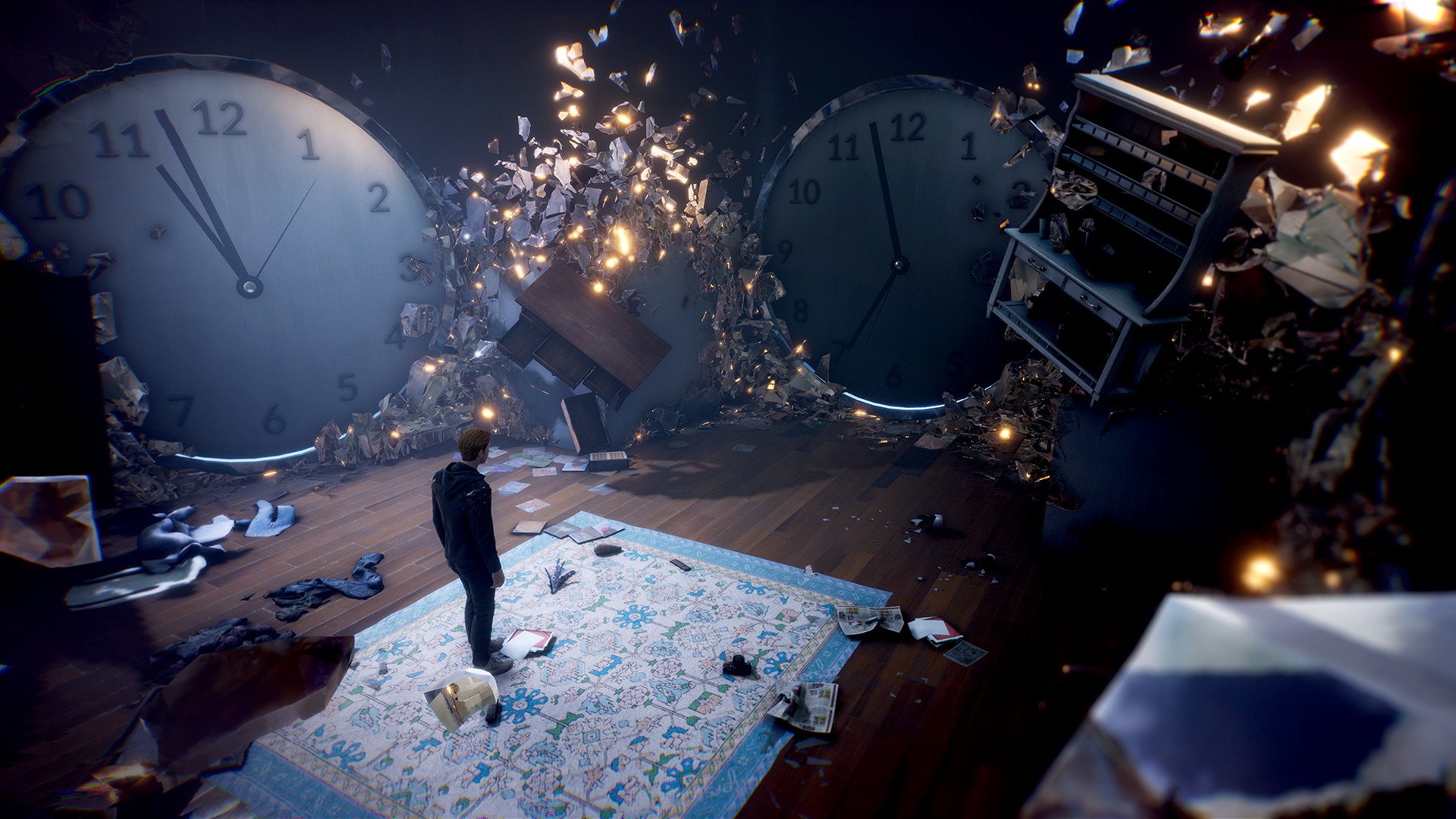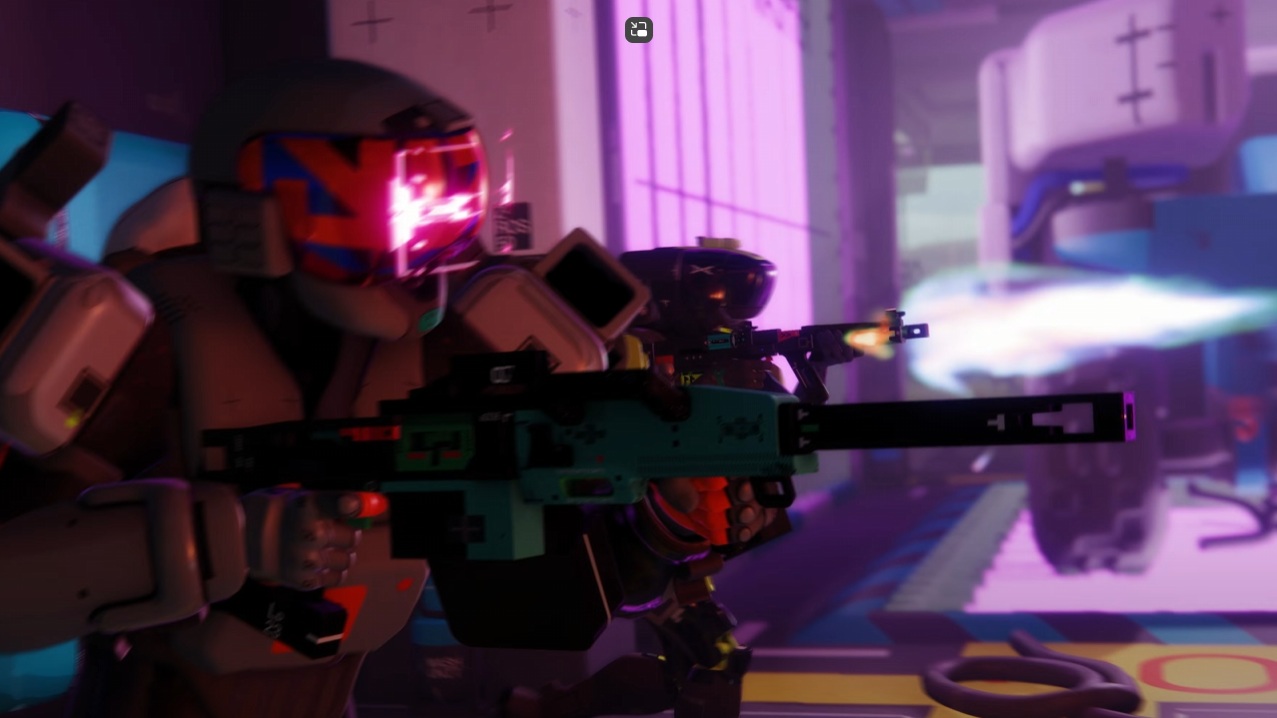Twin Mirror, the first self-published game from Dontnod Entertainment is like many of the company's other titles. It's a choice-based character drama with some supernatural undertones that seeks to create unique systems for players to experience those choices. Life is Strange had time travel, while the recent Tell Me Why used the instability of memory to force the player to make tough decisions.
The system in Twin Mirror is the Mind Palace, a place where our main character, Sam Higgs, can go to talk to a version of himself that I like to call Other Sam and relive important memories. It's a chrome, metallic infinity of mirrors where he can retreat inside himself when things get difficult on the outside. This becomes important when he's forced to go back to his small, mining home town in West Virginia after his best friend Nick dies under suspicious circumstances. He's left to face his inner turmoil while attempting to solve a murder.
It's a classic setup for a detective story. What can make it stand out is in the execution. However, while Twin Mirror is visually appealing and presents a new way to sway the decisions of your character, therefore adding to the Dontnod canon, the actual meat of the game leaves a lot to be desired. Sam is at the core of the game, but he's not only unlikeable, but the game makes some serious missteps to make him the protagonist, leaving a lot of elements behind in the process.
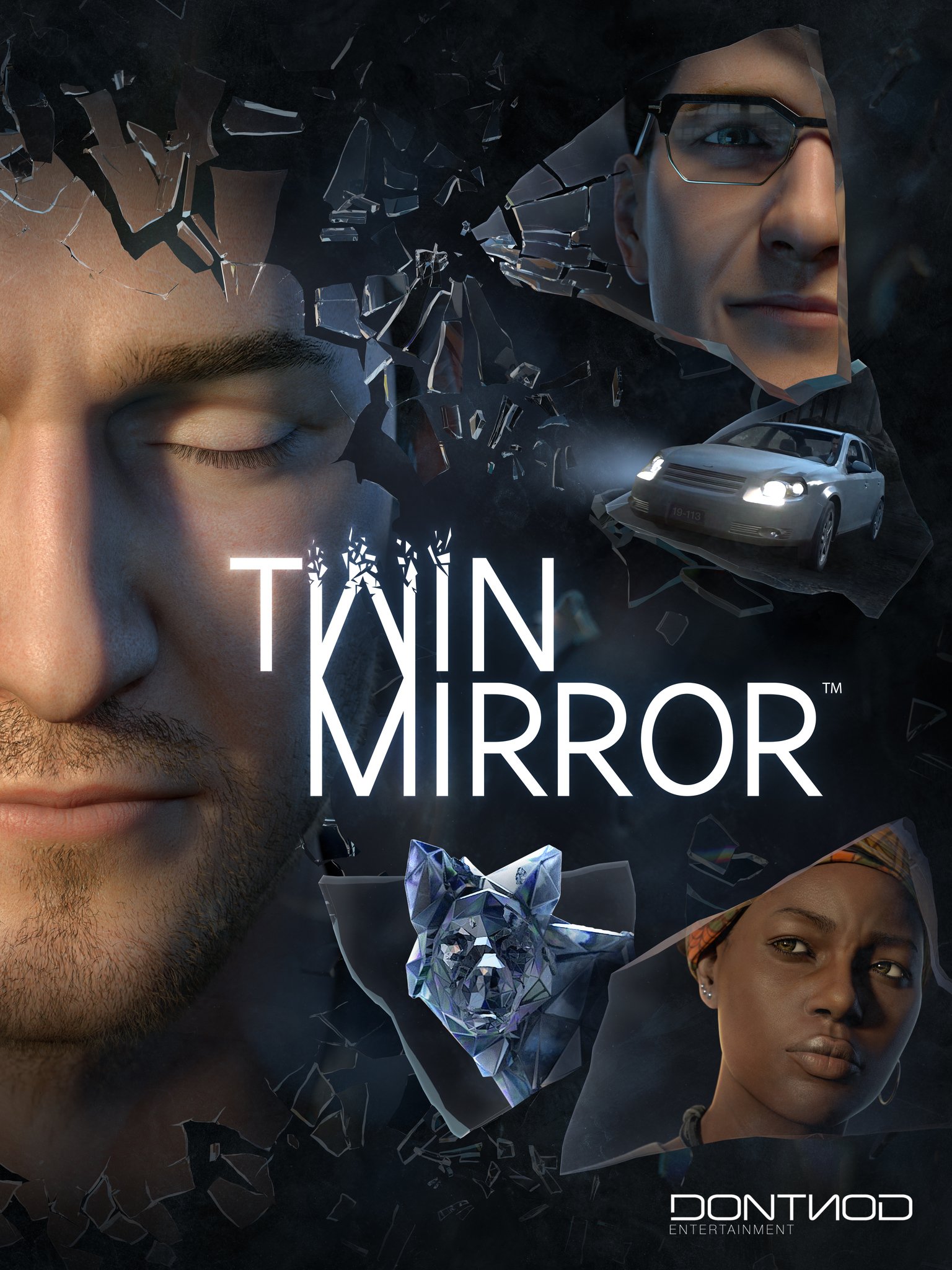
Bottom line: Twin Mirror has some great ideas, including a visually and narratively appealing Mind Palace system, but the weakness of its main character and its "tell don't show" method of storytelling drag the whole endeavor down.
For
- Mind Palace is an interesting concept
- Story is a good length
- Collectible system allows you to go back and replay scenes
Against
- Sam is a horrible protagonist
- None of his growth is earned
- Story and setup are weak overall
- Dialogue isn't clear sometimes
Twin Mirror review: A classic Dontnod setup
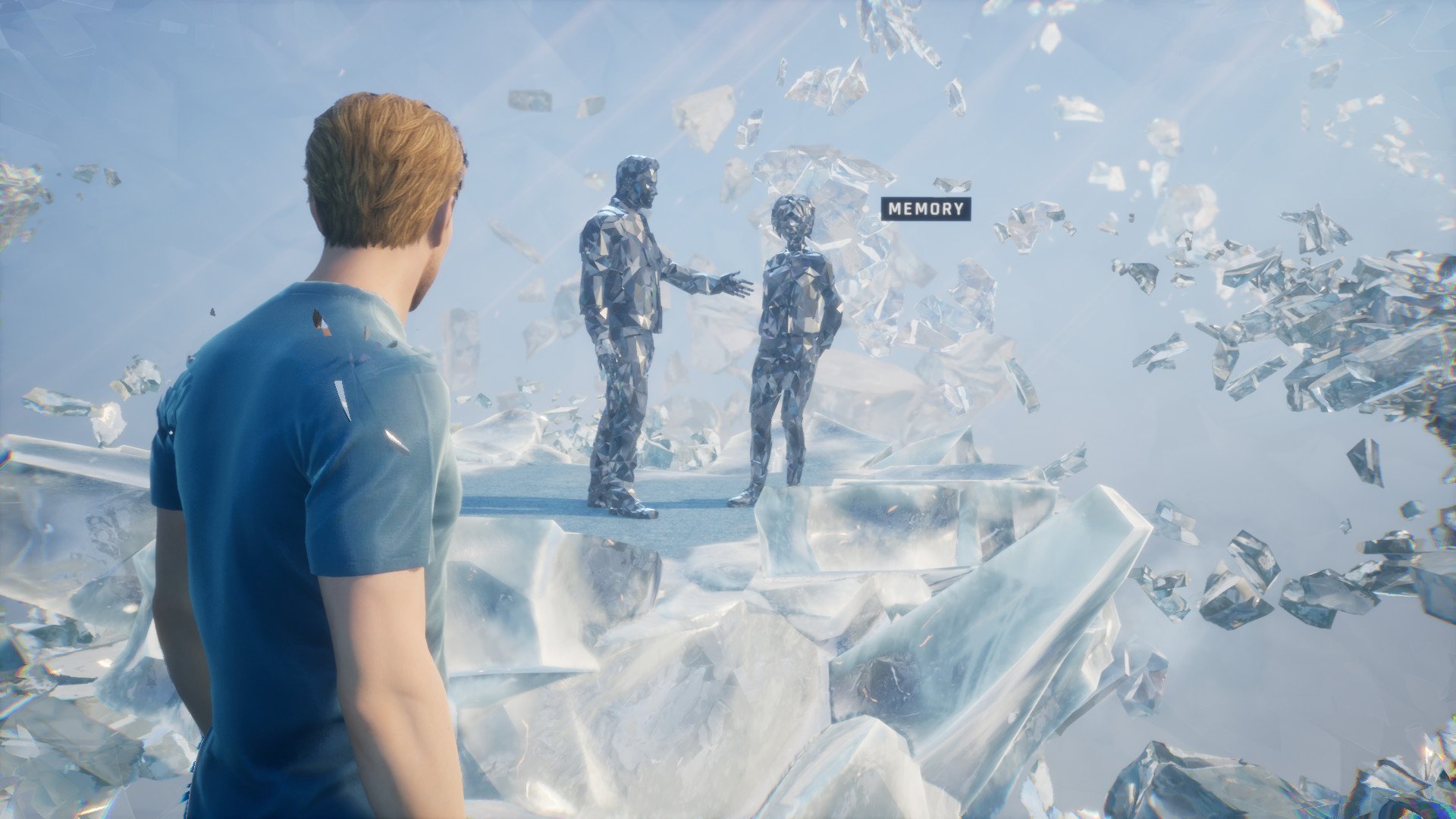
| Category | GameNameXXX |
|---|---|
| Title | Twin Mirror |
| Developer | Dontnod Entertainment |
| Publisher | Dontnod Entertainment |
| Genre | Psychological thriller |
| Minimum Requirements | Windows 7/Intel Core i3 2100 or AMD Phenom X4 9454GB RAM/AMD Radeon HD7790 or NVIDIA GeForce GTX 750 |
| Game Size | 30GB |
| Play Time | 6 hours |
| Players | Singleplayer |
| Launch Price | $30 |
Dontnod has been a standout indie game maker for years thanks to the success of Life is Strange, and has since narrowed its focus on choice-driven, point-and-click titles with a twist. While Twin Mirror isn't supernatural (that we know of) like Dontnod's other entries, it follows a similar formula. A character has to make choices that affect those around them, and usually that involves implementing a way for the player to see their options in a different light — not as just lines of text on the screen.
The Mind Palace is an open space in Sam's mind that can help him in any number of situations. He can use it to run simulations to recreate crime scenes, talk to his alter ego for advice, relive memories, and, occasionally, have panic attacks. In these latter situations, the Mind Palace becomes unstable, forcing him to solve puzzles or traverse mazes that are constantly changing. If he can get over his hallucinations, than he can keep going in the real world.
It's a visually unique way to recreate the inner workings of the mind and while the presentation sometimes simplifies mental illness, it gets the job done. The Mind Palace is constantly recreating itself, so it's never the same experience twice. This sometimes made me feel that there wasn't enough consistency, but what person's brain has ever been consistent? It works to unsettle the player and make them feel how Sam's mind is either aiding him or holding him back.
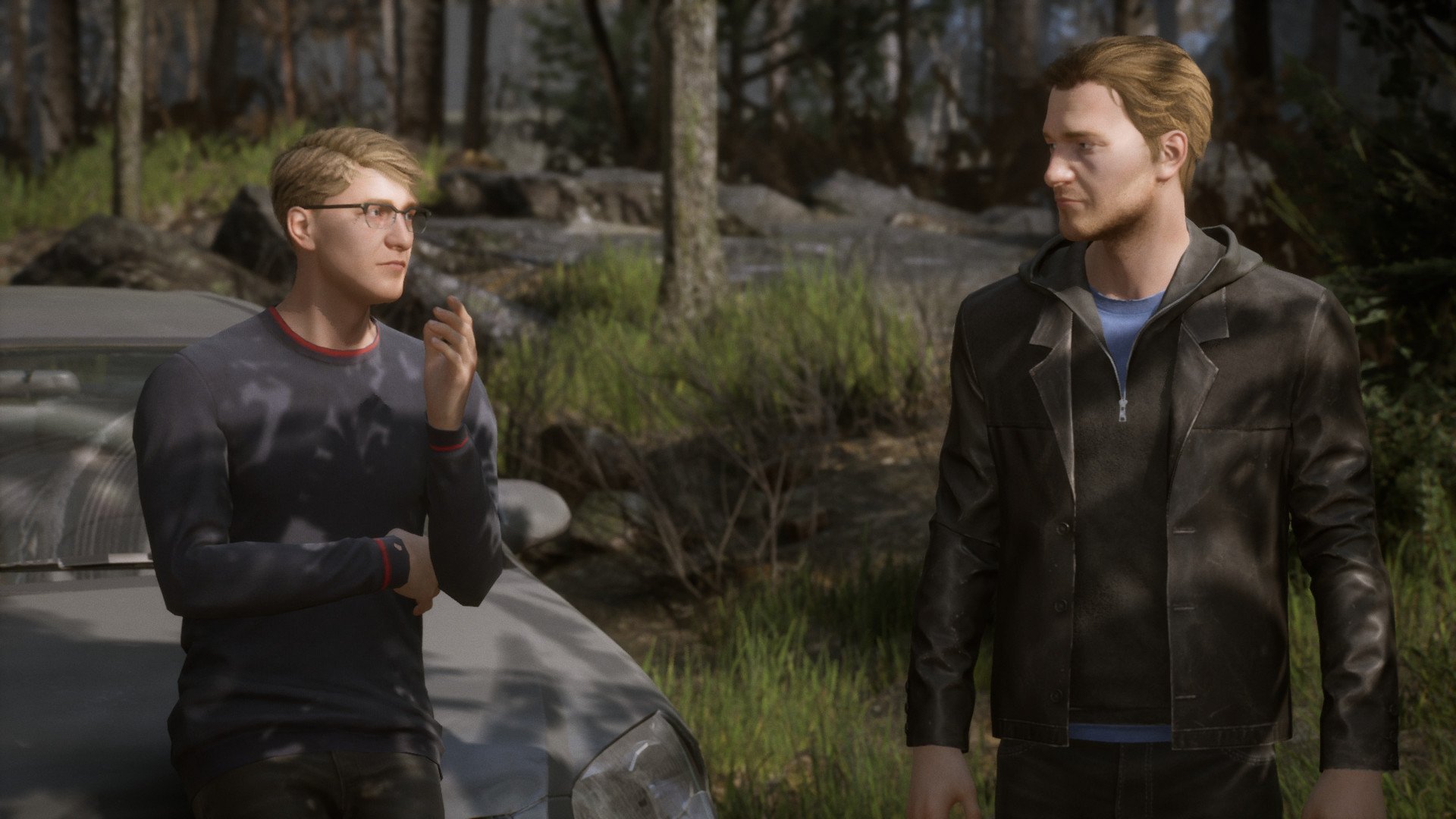
The center of this setpiece, however, is Other Sam (who never gets a name in the game beyond "Him"). He''s like you but… cleaner. He's clean shaven, wears glasses and a blazer, and is calmer. It takes a while for the game to clarify these differences, but it comes down to something I think a lot of people with anxiety suffer from: How you should present yourself to the world. As a person with a multitude of anxiety disorders, I'm constantly worrying about how people see me and what I can do to "fake" my way through life, and Other Sam symbolizes these needs for real Sam.
The Mind Palace adds an interesting layer to the Dontnod formula and it's able to liven up the task of solving the mystery at the heart of the story. It also ties in well with Sam's mental health struggles by providing an easy-to-understand and arresting visual for it all. It's also a new system for the company that it could potentially expand upon in other games. The problem is that it's all Twin Mirror has going for it.
Twin Mirror review A story that's selfish and lackluster
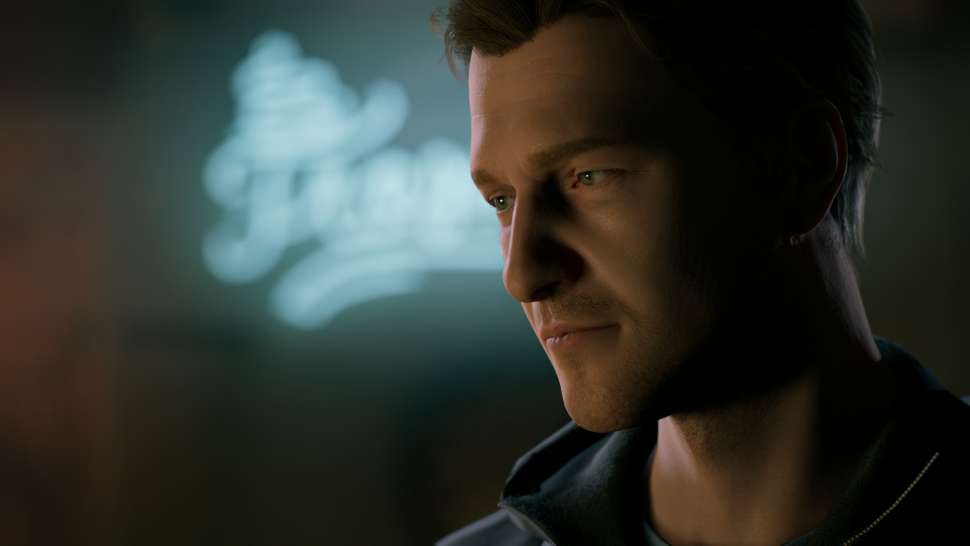
As Sam, a former journalist, you can make decisions that impact the lives of others, even in small ways. In return, you are supposed to improve and move forward mentally. Solving the mystery is a part of your recovery, but that, unfortunately, means that Sam is at the center of everything. It makes sense given he's the protagonist, but that's at the detriment of any other character development. Supporting characters get one or two standout traits at most, but not nearly enough to make them feel fully-realized. Anna, who's for all intents and purposes the secondary character throughout the story, has no definable aspects of her own besides being Sam's ex, but more depressingly, there's no illusion of agency. Whether your play Sam as a flawed guy doing his best or an obsessive who wants to solve the mystery and "get the story" among anything else, Anna patiently goes along with any shenanigans.
Supporting characters get one or two standout traits at most, but not nearly enough to make them feel fully-realized.
This becomes the most problematic when she doesn't reprimand Sam for his plan to start a fire in an encampment in order to access somebody's trailer. She has a connection to this area, called The Cove, and the people that live there, but Sam burning down a piece of art doesn't seem to phase her. Subsequently, any of his bizarre behavior only evokes mild annoyance from her. She doesn't react to much at all, which makes her feel like a dummy Sam drags around rather than a realized person.
This is a giant hole in the game's story structure. One of the issues that Sam is dealing with is his relationship with others, so his apparent improvement at the end (which supporting characters make sure you realize has occurred by telling Sam that he's "better"), feels unearned. Twin Mirror wants you to believe that by the end, all the hard work you've done has helped the outside world as well as the one in your mind, but there's no evidence of this minus what the game tells you. People tell you you've helped (or haven't), but Sam is the same jerk he was in the beginning, no matter how you approach obstacles. He still only cares about himself. The only difference is whether or not the Other Sam is still around or not.
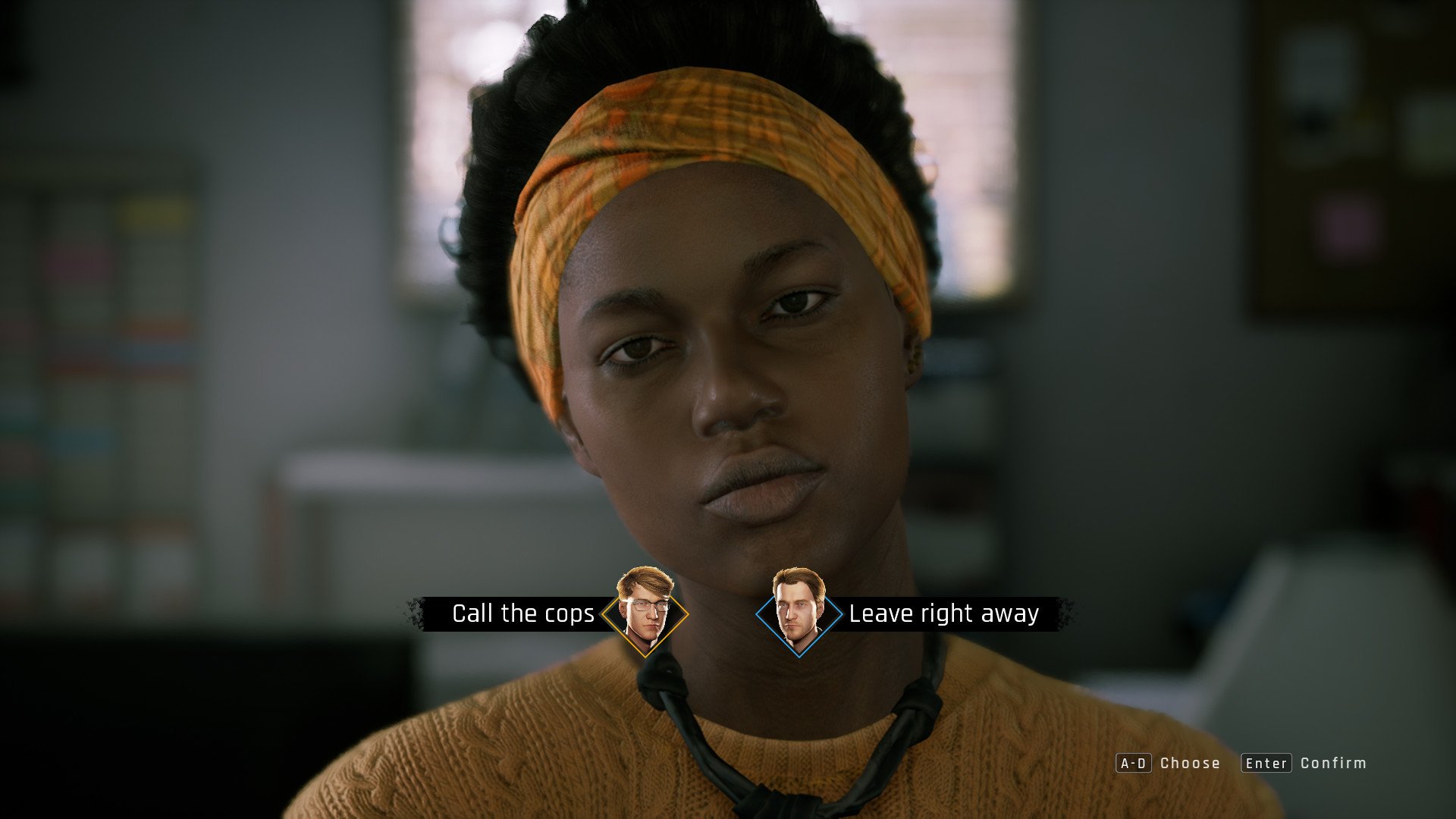
Beyond the lackluster character work or even the telling rather than showing approach, the mystery at the root Twin Mirror is just lackluster. There isn't much here beyond figuring out who killed your friend, and that doesn't require a lot of effort on the player's part. The game wants you to believe that talking to people in the town will unravel secrets about their lives and get you one step closer, but there are, frankly, maybe three viable suspects and it's easy to figure out who's involved. Even the double twist at the end, which reveals that there was a second person behind the conspiracy, is standard detective story fare and doesn't add any depth to what is ultimately a paint-by-numbers setup.
Ultimately, Twin Mirror is a selfish narrative.
This isn't due to a lack of effort. Twin Mirror tries to make itself about the opioid crisis and how it affects dying towns, especially coal mining towns in the U.S., but other games have told versions of this narrative better by focusing on the people it affects, not a vessel like Sam who is not directly affected at all. Even more simplistic and inappropriate is how it puts the blame on a main villain in the end — an outsider who was behind the scenes all along. The opioid crisis isn't about bad apples, but about systems that don't support the people it hurts. There is an internal conflict with Sam about his place in tackling this crisis, but it appears to be more about whether Sam should live in reality and tell the truth even when it's tough rather than how he's affected by anything around him.
Ultimately, Twin Mirror is a selfish narrative. It forces the player to inhabit a protagonist who is unlikeable and then frames every other aspect, from the mystery to every character, around him. Nothing exists outside of Sam, and everything is then molded to be about him. Even Bug, who is arguably the only distinct character in the cast, is made, whether intentionally or not, to look like a younger version of Sam.
At one point, the Other Sam tells our Sam that "to be happy you need to focus on people, not things." However, you can't tell the audience that this is one of the key issues he has to get over, and have every character not matter. You can't make a story about self improvement that shows none of that, but tells you that it's happening anyway. To make a story that's about reaching out to and caring about people but to make none of them matter is not only disappointing, it's outrageous.
Twin Mirror review Should you buy?
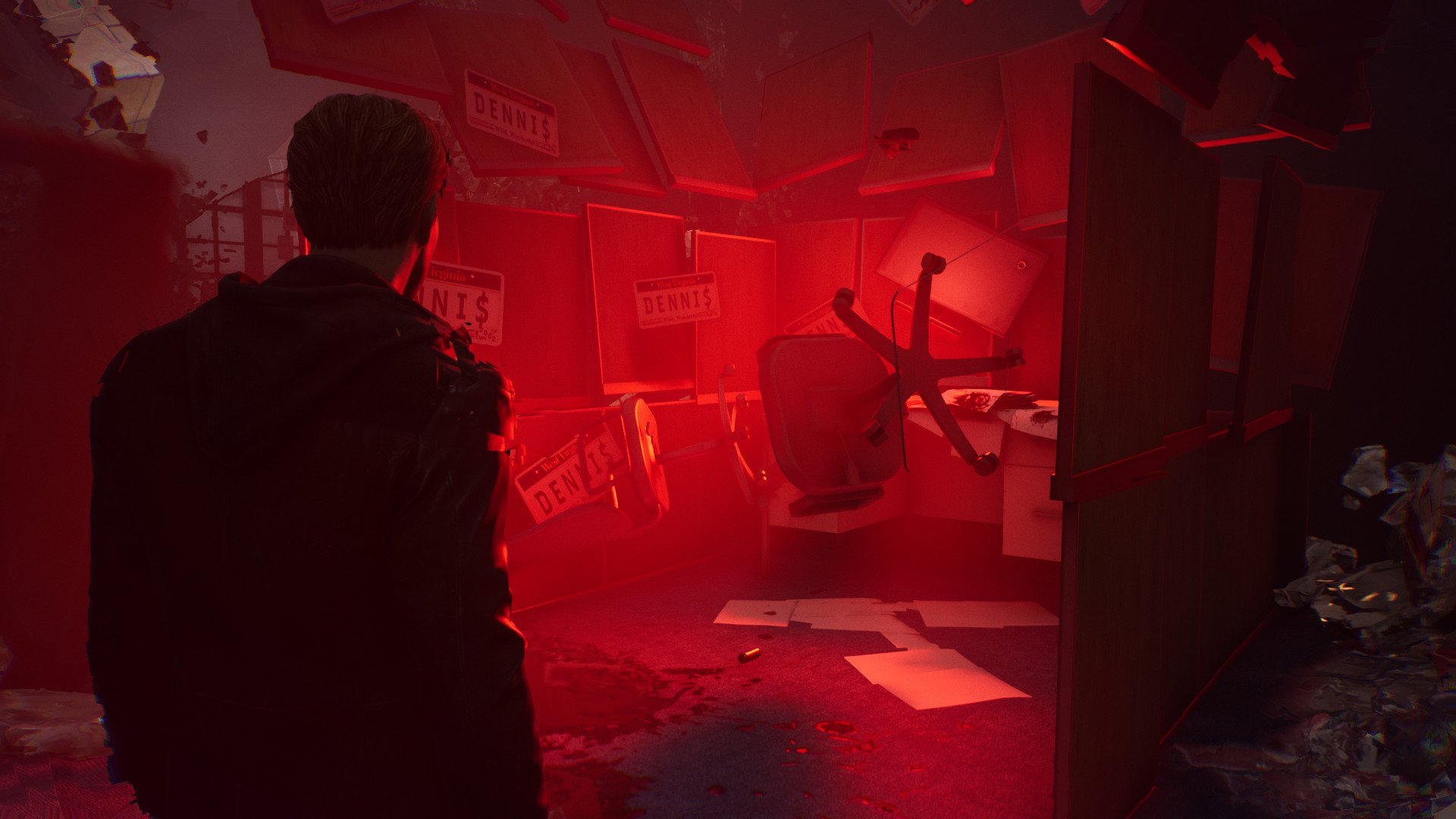
Twin Mirror is a Dontnod game through and through. It has the choice-driven adventure with multiple outcomes, a focus on a character's mental health and trauma, and a unique system for making decisions. However, it fails where it counts. Sam Higgs is not only an unlikeable protagonist, but he also never earns what the game dishes out. It becomes a chore to finish up the game because you know Sam is going to get a good ending even though he doesn't deserve it.
This makes the game feel unfinished, although it also feels that way in other respects. Beyond the performance issues (which the developers say wil be fixed at release), I spotted a number of typos. The choices you're given also sometimes don't seem to correspond with what they actually mean, which feels manipulative at worst and incomplete at best.
If you have a character-driven story of any kind, you need to make sure that the character can lead the plot along. If it can't, then what's the point?
Twin Mirror is out on Epic Games Store, Xbox One, and PlayStation 4.

Carli is the Gaming Editor and Copy Chief across Windows Central, Android Central, and iMore. Her last name also will remind you of a dinosaur. Follow her on Twitter or email her at carli.velocci@futurenet.com.
